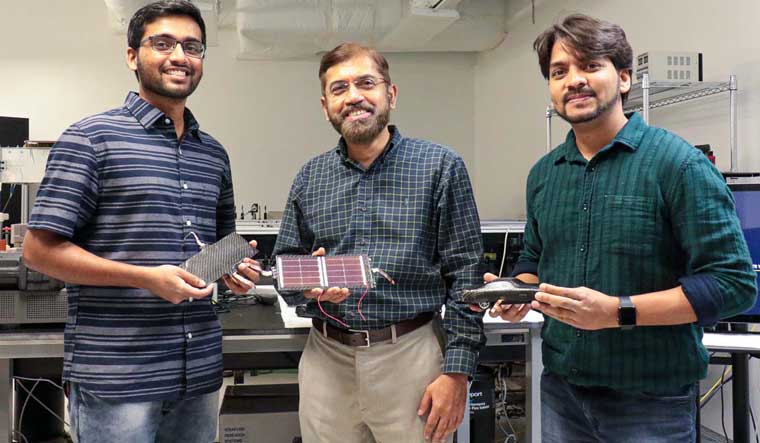The body shells of electric vehicles can be used for storing energy and supplementing the power stored in the batteries. This 'suit' is made of layered carbon composite material that works as an energy-storing super capacitor battery hybrid device due to its unique design at the nanoscale level. This has been made possible by a research team of University of Central Florida.
The research was carried out by a team headed by Dr Jayan Thomas, professor of nanotechnology and head of materials science and photonic department. The other members who participated in the research
were Kennedy Space Centre researcher Luke Roberson and Kaushik Sampath Kumar and Deepak Pandey, both of whom are of Indian origin.
The latest nano materials including carbon fibre and graphene along with water were used to prepare the material for manufacturing the body shells of the vehicles.
The material used for the body shell will give 25 per cent more energy than what is provided by the battery. As a super capacitor, it would also boost an electric car's power, giving it the extra push it needs to go from zero to 96.5kmph in just three seconds.
The power suit material for electric cars is as strong as steel and lighter than aluminium, which will reduce the overall weight of the vehicle considerably. Besides, it will also boost the vehicle's power capacity.
The details of the research have been published in a scientific journal.
Besides, a special report has also been published on the research work in the well-known scientific journal Nature Materials.
Luke Roberson says the materials could be used as frames for cube satellites, structures of world habitats, parts of futuristic eyewear and virtual reality headsets.
The US National Science Foundation funded the research work.
Dr Jayan Thomas, who hails from Vazhoor in Kottayam district, did his Ph.D from Cochin University of Science and Technology (CUSAT).
(This article was first published in onmanorama.)




